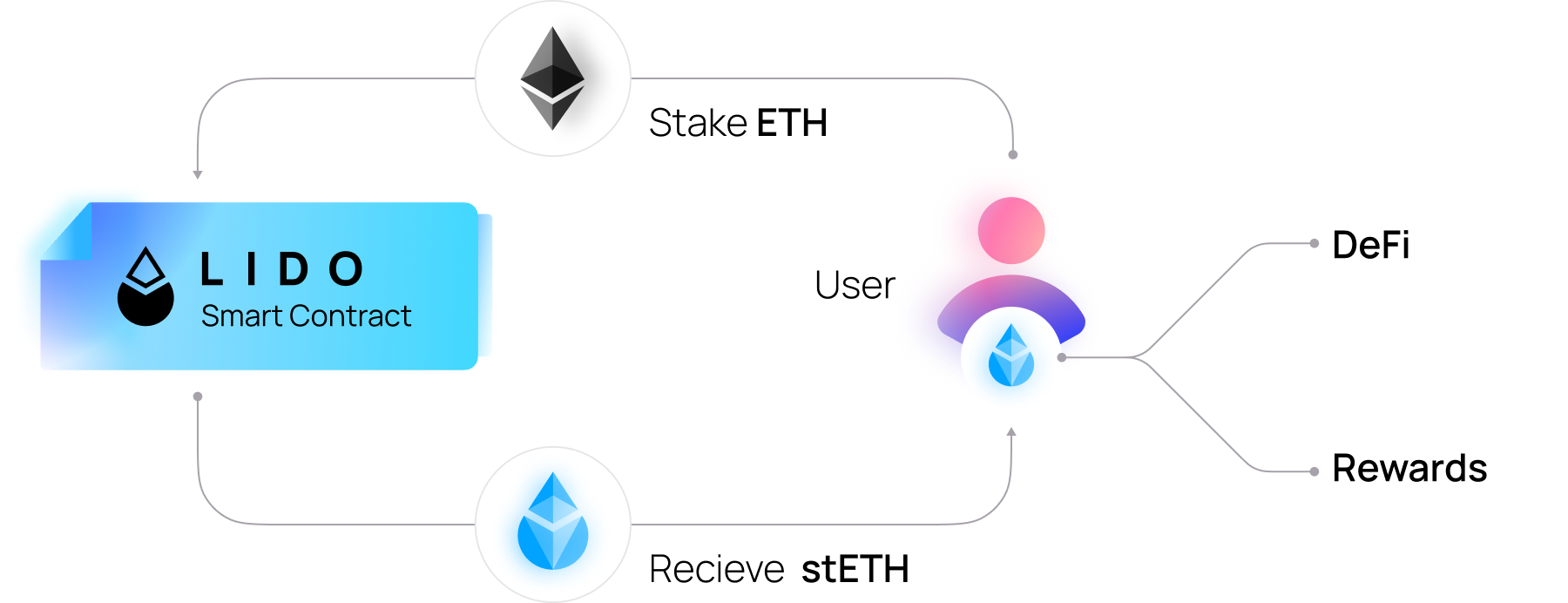
The Lido Staking Protocol ("Lido") is staking middleware that lets users participate in decentralized Ethereum staking without locking up their tokens. By staking through Lido, users receive a liquid token called stETH, which represents the staked ETH and reflects earned rewards (or accrued penalties), all while remaining usable within DeFi and the broader ecosystem. Lido operates via a set of smart contracts on Ethereum that manage deposits, reward distributions, and withdrawals in a non-custodial manner. Additionally, off-chain services tightly integrate with the protocol to support proper operations for deposits, withdrawals, and accounting flows.
The Lido Protocol involves three major actors and their interactions:
Staking Users
Individuals or entities who wish to stake their ETH and receive stETH through the Lido protocol.
Node Operators
Individuals or entities that run validators using ETH provided by staking users in a non-custodial manner. Learn more.
Lido DAO
A Decentralized Autonomous Organization (DAO) that oversees the protocol's long-term development and maintenance. It is governed by LDO (Lido governance token) token holders approving upgrades, deciding on key parameters and setting fees, facilitating node-operator participation and managing oracle operator sets, and empowering committees to handle defined operational tasks. Learn more.